Engaging | Integrated | Inquiry driven
Our broad and balanced curriculum is creatively designed to match the educational needs of the children. We believe in providing opportunities for children to connect with people, ideas, and their surroundings. The curriculum’s flexibility empowers our teachers to address the unique needs and interests of each child. This tailored approach promotes student engagement that allows them to discover their strengths and prepares them for future challenges. We champion progressive education, moving beyond rote learning to foster curiosity, creativity, and practical application of knowledge, preparing students to be adaptive lifelong learners developing essential skills, which are critical for success in the 21st century.
Gautam Singhania Global School promotes a curricular program that develops the intellectual capabilities of its students and directs them to the path of being good human beings.
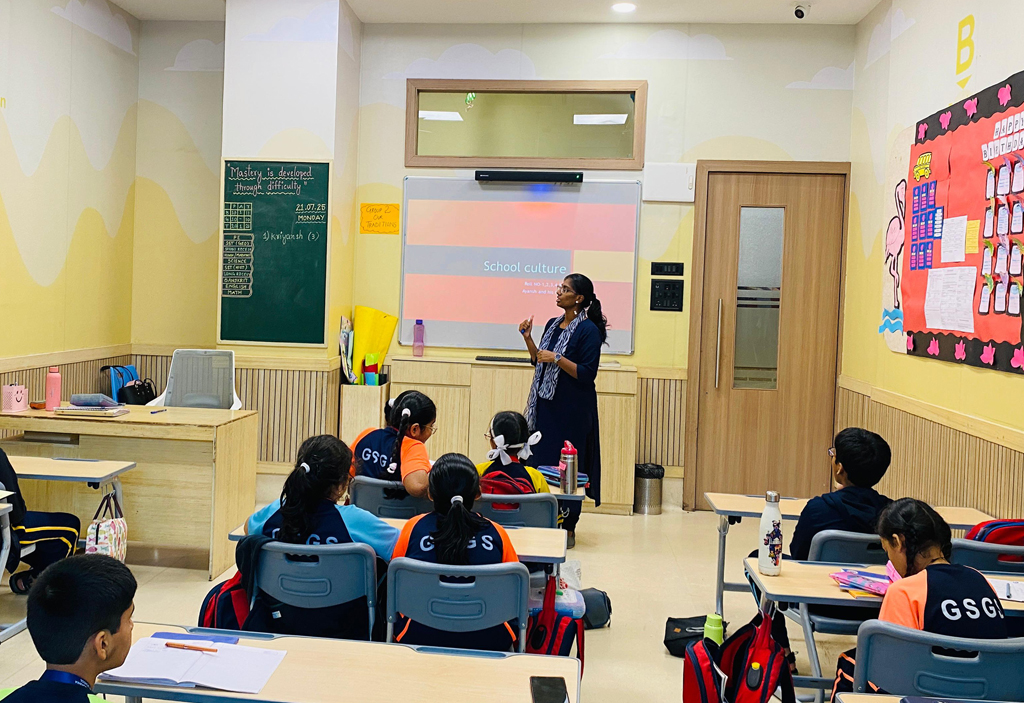
Our smart classrooms are designed to create dynamic and interactive learning experiences. Equipped with interactive whiteboards encouraging collaborative projects and personalised learning pathways.
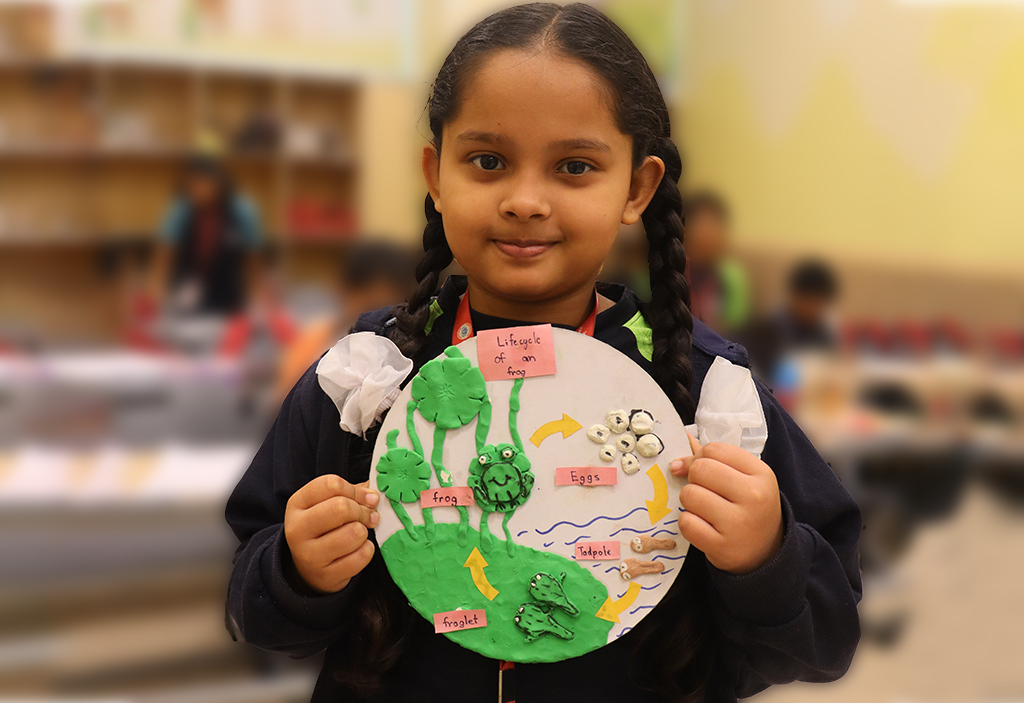
We believe that hands-on activities play a crucial role in capturing students’ interest and fostering an active learning environment. By engaging in practical tasks, students are encouraged to analyze, evaluate, and devise solutions to real-world challenges, thereby enhancing their critical thinking skills. Moreover, many of these activities promote teamwork and communication, allowing students to build essential social skills and collaborative abilities.
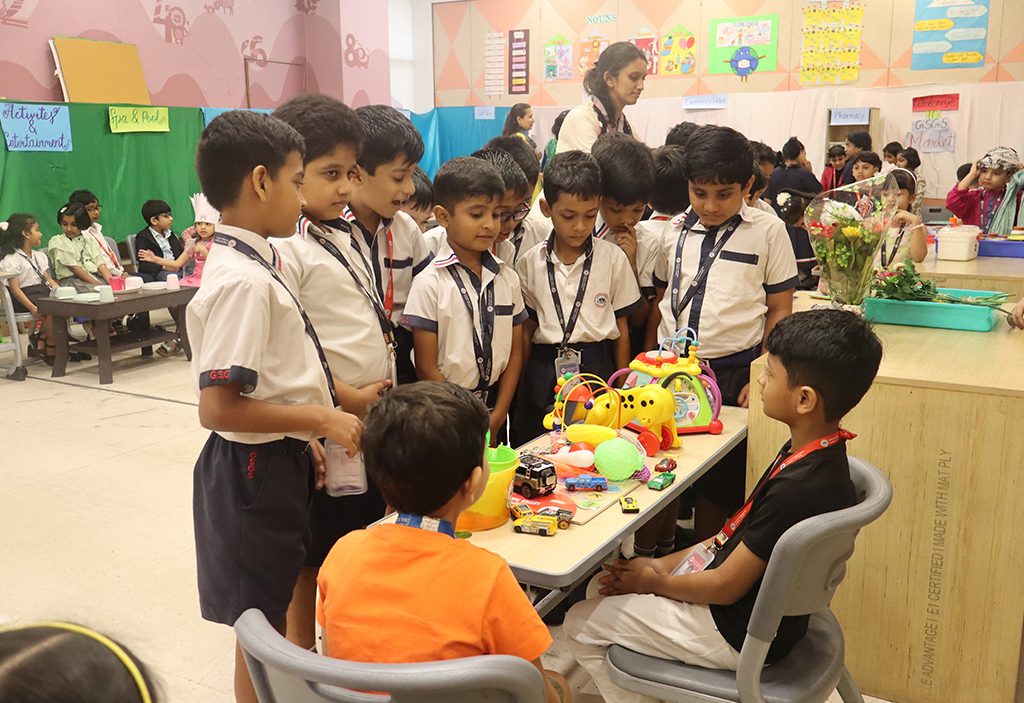
Our peer learning approach empowers students to learn from and with one another in a collaborative setting. This not only aligns with our core values but also allows learners to share knowledge and experiences, significantly deepening their understanding of various subjects and skills.
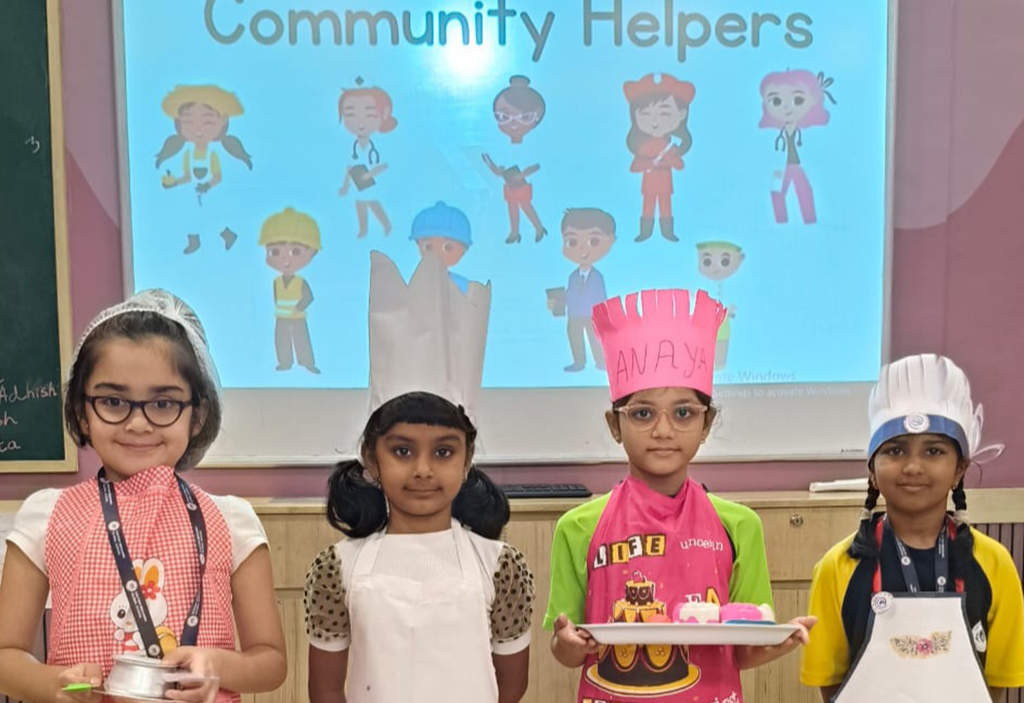
Role playing is another dynamic method we employ to convey lessons effectively. By taking on different roles, students can experience and demonstrate key concepts, making learning both engaging and memorable.
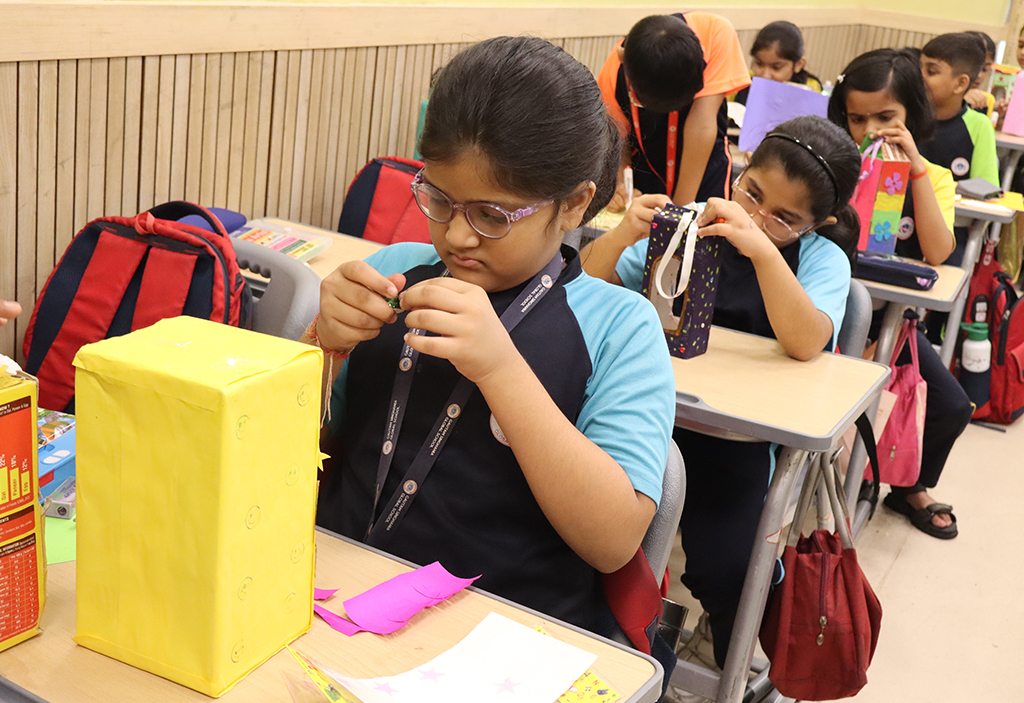
Projects serve as invaluable teaching tools that help students explore and explain concepts hands-on. When learners create their own projects, they internalize concepts more effectively through experiential learning; it embodies our philosophy of ‘learning by doing.
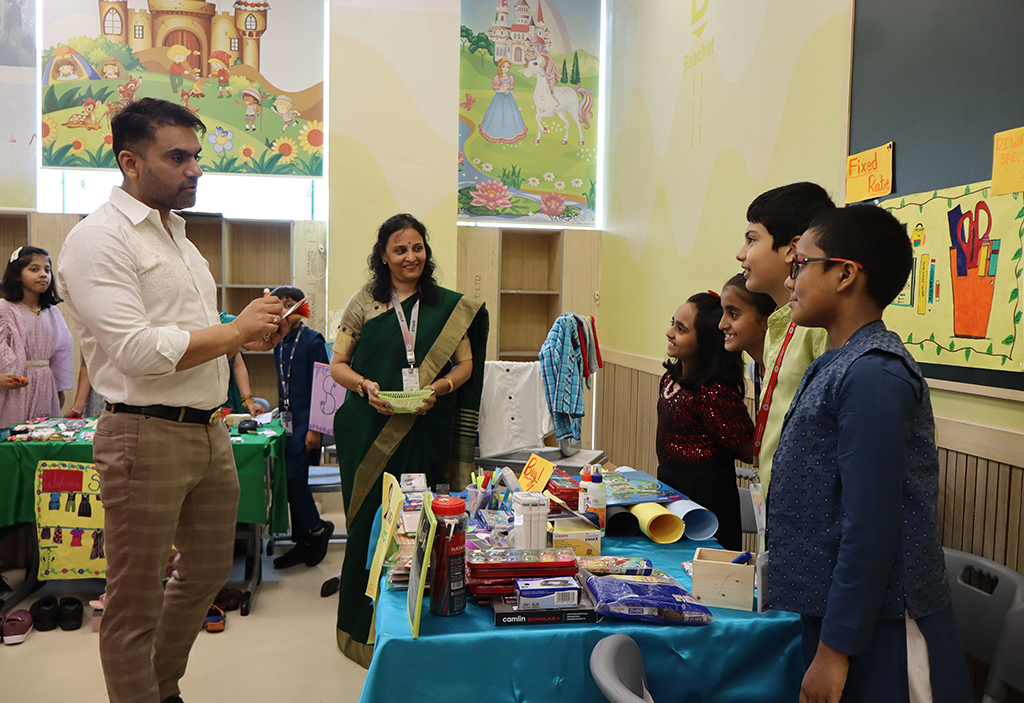
We provide students with short, realistic scenarios that encourage the development of the 5 C’s: Critical Thinking, Candor, Culture, Communication, and Collaboration. This skill set prepares them to take on future responsibilities and challenges with confidence.
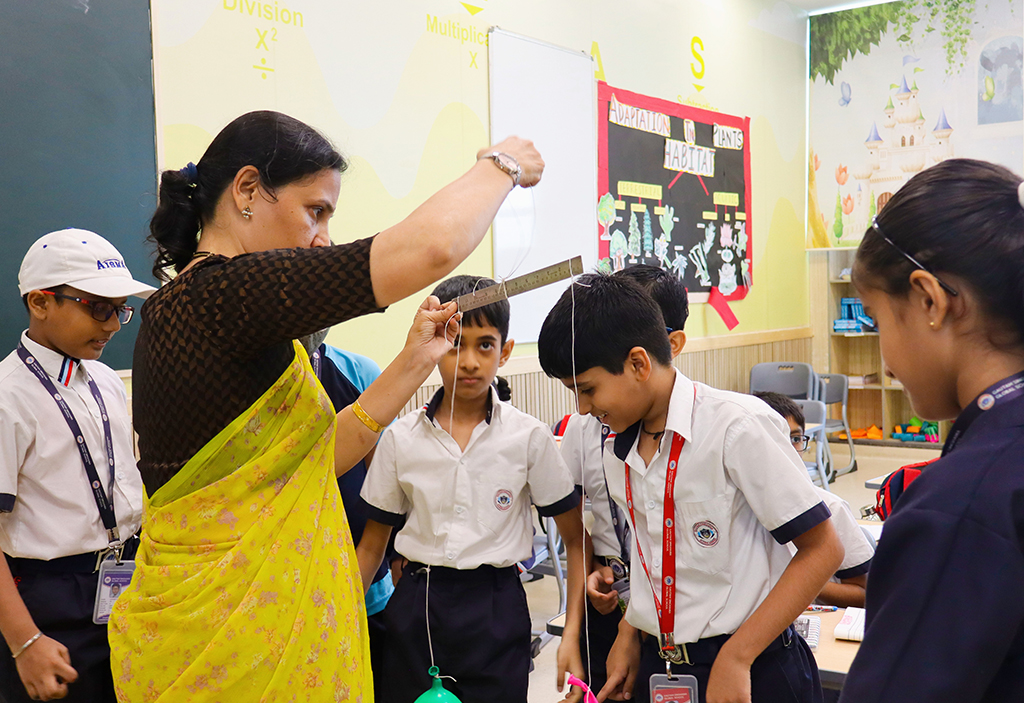
Our facilitators strive to engage students intellectually, encouraging them to become active participants in their learning journey. By integrating hands-on activities into our lectures, we aim to spark curiosity and foster a deeper exploration of subjects.
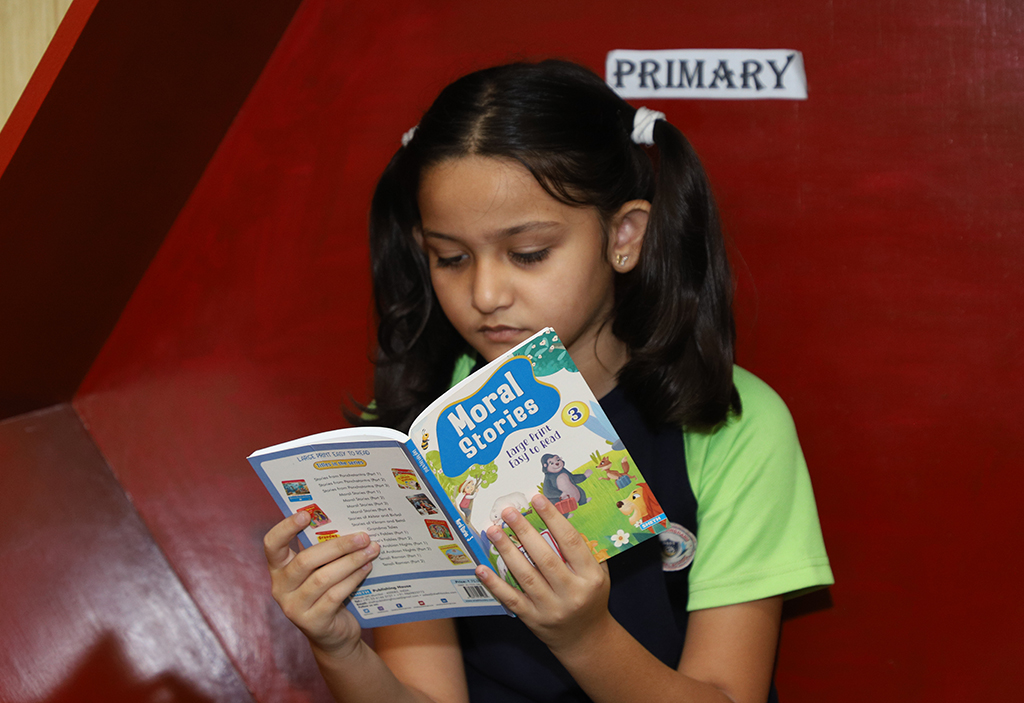
Our dedicated team of facilitators is passionate about kindling the curiosity of every child, nurturing their potential to become lifelong learners.

GSGS mission is to provide comprehensive education that inspires students to reach their full potential, foster love of learning, develop knowledge, skills and values for responsible global citizenship.
Gautam Singhania Global School, Thane GB Road
Kavesar, Thane West – 400615.
9459612222 / 9459812222
Gautam Singhania Global School, Dombivli
Swaminarayan City, Mothagaon, Dombivli West, Dombivli – 421202. 9459762222 / 9459782222